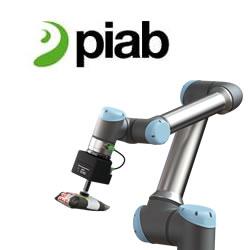Addverb Technologies Expands U.S. Presence with Robotics Research & Development Center in Silicon Valley
-Former Google engineer to lead Addverb's cutting-edge research and development center in the Bay Area -The leading robotics company also announces the opening of corporate headquarters in Irvine, California
Addverb Technologies, the leading automation solutions provider for warehouses and distribution centers, today announced the opening of a new Center of Excellence for Advanced Robotics Research and Development in Fremont, California. The center, located in the heart of Silicon Valley, will focus on developing state-of-the-art platforms for autonomous mobile robotics and automated guided vehicles, as well as advanced algorithms for human-machine collaboration and biomedical robotics.
Overseeing the center's operation is Tapan Pattnayak, who was named Director of System Architecture at Addverb in April 2022. Pattnayak brings extensive product development experience from Google, Nvidia, and Intel to build a world-class research and development team in the Bay Area under the leadership of Mark Messina, CEO of Addverb Technologies USA Inc.
"This is an exciting time for Addverb as we continue to grow our presence in the United States and build on our strong foundation of innovative products and solutions," said Pattnayak. "The new advanced robotics research and development facility will enable us to serve our customers better in the Americas and continue to develop the next generation of robotic technologies."
The 3,000-square-foot center will house a team of engineers focused on developing new products and cutting-edge technologies for the Addverb portfolio. Aside from attracting tomorrow's pioneers in logistics automation and industrial robotics, the center creates additional opportunities for Addverb to collaborate with the Association of Advancing Automation (A3) - the leading global trade association for the automated manufacturing and robotics industries.
"The Silicon Valley is the perfect location for our research and development center as the area is a hub for innovation and technology," said Pattnayak. "We look forward to tapping into the region's vast talent pool of engineers and pioneers in the growing robotics community to contribute to our mission in designing and delivering innovative, efficient, and flexible solutions for customers across different industries."
Addverb's continued expansion into the U.S. is a key part of the company's growth strategy, and the new facility allows Addverb to provide both onsite and online client support.
In addition to its Advanced Robotics Research and Development Center in the Bay area, Addverb also announced the opening of its U.S. headquarters in Irvine, California. The new corporate office in Southern California is home to the company's project management, implementation, sales, marketing, human resources, and customer support functions.
To learn more about Addverb's intelligent logistics solutions, visit https://addverb.com/contact/.
About Addverb
Addverb Technologies provides smart end-to-end warehouse and industrial automation and logistics solutions. The fleet of automated robots, material handling technologies, in-house system integration services, and software solutions helps improve the performance and accuracy of warehouse and factory operations.
Addverb's mission is to discover the right automation for a customer's problem, design the solution to manufacturing the product, develop and execute the project, and provide dedicated after-sales support. Addverb's headquarters, manufacturing, and R&D facilities are in India, with subsidiaries in Australia, Asia, Europe, and the United States. Addverb's current 100+ customers include Reliance, Unilever, Flipkart, Coca-Cola, Pepsico, Johnson & Johnson, and PAR Pharmaceutical.
Featured Product

